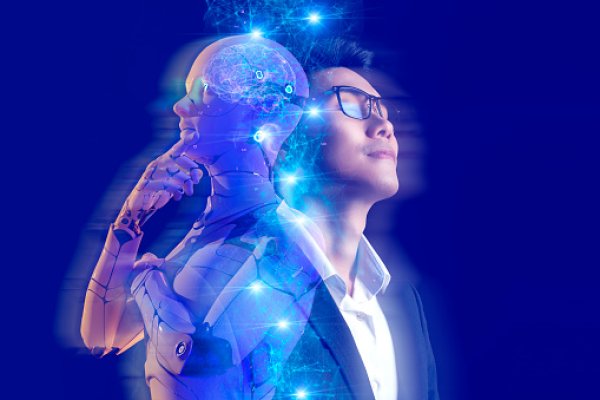More than 1,000 renowned names in the technology industry—such as Elon Musk, Steve Wozniak, and Andrew Yang—have composed an open letter urging AI innovators to slow down the advancement of Artificial Intelligence due to its potential threats to humans.
We demand that all AI researchers cease training AI systems more powerful than GPT-4 for six months to ensure that the impacts and risks are manageable when such powerful AI systems are developed. Accordingly, we urge all AI labs to take a break and ensure the effects will be favorable.
The letter mentions the risk of LLMs with no regulation, potentially leading to humans being surpassed by smarter AI systems. This could involve AI taking over every job leaving human beings without purpose.
Is Skynet A Reality? Examining AI’s Impact On Humanity
With the development of AI technology, should we allow machines to increase our information sources with misinformation and false information? We must reflect upon this contemporary issue since artificial systems can now carry out general tasks as well as humans.
The letter inquires: “Are we prepared to automate away all occupations, including the more meaningful ones? Could we create alien minds which might one day outwit, surpass and supersede us? Are we ready to run the danger of losing control of our culture?”
Greg Brockman, the CEO of ChatGPT and the creator of OpenAI, expressed concerns at SXSW about potential damage AI could cause, such as disseminating false information or launching cyberattacks. Unlike some dystopian scenarios of artificial beings becoming sentient and taking over the world, these worries are far less dramatic.
According to the letter, the six-month pause aims to give policymakers and AI safety scientists sufficient time to set up safety guidelines for the technology.
The Pause Giant AI Experiments letter emphasizes the necessity for developers not to hasten their progress in releasing new capabilities of Artificial Intelligence without having the proper comprehension of the potential damage that can come from it; instead, it is not advocating for a halting of entire development related to AI.
The Pause AI Open Letter might come off as a public relations ploy to some skeptics due to the potential commercial interests of CEOs like Musk in slowing OpenAI’s development of GPT-5. Nonetheless, despite these reservations, the impact could still be considerable.
Chris Doman, CTO of Cado Security, expressed wary skepticism of the letter’s authors in a statement provided to Dark Reading: “Given that many of these authors have commercial interests in their own companies keeping up with OpenAI’s progress, we have to be cautious about their intentions.”
OpenAI is likely the only company training an AI system more powerful than GPT-4, as they are now developing GPT-5.
Can The “Pause AI” Open Letter Make A Difference?
The letter, containing a range of backgrounds and public points of view from the famous signatories, deserves to be seriously considered, according to Dan Shiebler, a researcher at Abnormal Security, regardless of the celebrity names attributed to it.
The pledge signatories feature impressive AI minds, such as John Hopfield (Professor Emeritus of Princeton University and inventor of associative neural networks) and Max Tegmark (MIT’s Center for Artificial Intelligence & Fundamental Interactions). Both bring significant experience in the field to the table.
Shiebler says:
“The interesting thing about this letter is how diverse the signers and their motivations are,”
“Elon Musk has been pretty vocal that he believes [artificial general intelligence] (computers figuring out how to make themselves better and therefore exploding in capability) to be an imminent danger, whereas AI skeptics like Gary Marcus are clearly coming to this letter from a different angle.”
Although Shiebler believes the open letter may affect societal opinions on AI, he does not believe it will significantly affect the development of artificial intelligence.
Shiebler went on to say:
“The cat is out of the bag on these models,”
“The limiting factor in generating them is money and time, and both of these will fall rapidly. We need to prepare businesses to use these models safely and securely, not try to stop the clock on their development.”
John Bambenek of Netenrich believes that shining a light on ethics and safety considerations is beneficial. Regardless, bringing these aspects to attention must be done thoughtfully.
John Bambenek says:
“While it’s doubtful that anyone is going to pause anything, there is a growing awareness that consideration of the ethical implications of AI projects is lagging far behind the speed of development,”
“I think it is good to reassess what we are doing and the profound impacts it will have.”
The concerns raised by these tech leaders are a call to action for society as a whole. As AI continues to advance at an unprecedented pace, we must be vigilant in ensuring that it is developed and used responsibly and safely. Only by working together can we harness the full potential of AI while mitigating its potential risks to human existence.
Source: Dark Reading



